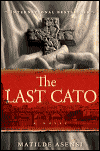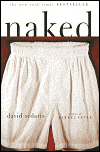Holding on to the Past
Among the enormous amount of stuff we had to get rid of/keep/give away from my parent's apartment when we moved my mother to the ALF, was was the 1982 edition of the "Anuario de Familias Cubanas" which roughly translates to "Cuban Family Yearbook". I found it the other day and was looking through it - memories came flooding back.
The Anuario was published 10 times between 1967 and 1996 and listed the names and other information of about 12,000 Cuban families living in exile. Not only did it list the "head of household", usually a man, it also mentioned the wife including her maiden name (in Cuba women didn't take lose their maiden name, they retained their maiden names and were referred to, for example, as Jane Doe of Smith - or Juana Perez de Rodriguez). It also included the names of all their children and their spouses and children (if applicable), and as was very common back then, the parent(s) of either the wife or the husband if they lived in the same house. It was basically a geneological record of the family.
But I think it's also a melancholy record. In many cases, in addition to their jobs in exile, it also listed people's profession in Cuba. In other words, if they were a lawyer or a professor in Cuba, they would list that as their profession and their current job was listed second. There were pages dedicated to listing all the royal titles held by Cubans in exile. Many will find that ridiculous, I find it to be very sad. I think it was a way of holding on to their past life, a life that at the time many still believed they would resume back in Cuba. Sadly, that belief died with so many of them.
I think this dual existance is a sui generis state, found among exiles, I would imagine from many countries. I think by now the remaining Cuban exiles that like my parents left Cuba in the 60s have accepted that they won't be returning, at least not to live. I remember when my father came to that realization a few years before he died. He was pragmatically resigned and a little bit broken-hearted.
I found the Anuario because the mother of a dear friend had lost her copy and was talking about how sorry she was to have lost it. When I told her I had one and was willing to give it to her she was so happy and appreciative. She's going to get a lot more enjoyment from it than I am or that my mother can, so why not give it to her? Why not give her a book full of memories of what was and can never be again?
Is there something of the same type among "Americans"? Is that what a "Social Registry" is? I tried Googling to find out but didn't find anything like it.







7 Comments:
I would love to take a look at this before you pass it on.
There's certainly nothing like it for "regular" (non-socialite) Canadians, and I doubt there is for Americans. There would be so many people in it and it would involve so much research through diverse communities that aren't necessarily bonded.
The "Social Registry" was (and probably still is) a list of "significant" families, that is, people who were involved in high-class clubs and associations. It listed the eligable bachelors and -- most importantly -- bachelorettes (the "debutantes") who were getting to a marriageable age.
I imagine it was a combination ego-stroke, networking guide, and a way of scouting the most profitable match for your layabout children.
I don't know if you have read it, but Miami Herald columnist Ana Menendez had written a book called In Cube I Was a German Shepherd. First, it is just a great book, one of my favorites. It looks at the difference of Cuba and Miami, and how things changed when people left Cuba for America. I highly recommend it!
An American version? Maybe the original Marquis "Who's Who." But it sounds like your book lists virtually every family and the Marquis books just those deemed important. In Europe, there was the "ton," or the recognized high society.
Social Registers are generally localized. I think there was one in early 20th century New York that was considered the original A-list. It might be fun to do a little research.
Toni writes:
"But it sounds like your book lists virtually every family"
No, it's not everybody. It included those considered "upper middle class and above" *in Cuba*, if not necessarily in exile.
Many Cubans live in the hope of freedom some day and I hope they get it...ciao
The New Yorker issues from 1925 to 1928 make frequent comments about "The Social Register" in a way that implied it was readily available.
Yes, definitely time for research. :)
Post a Comment
<< Home